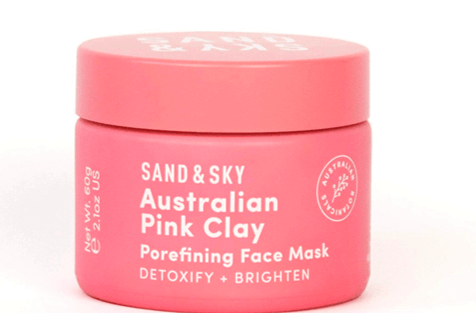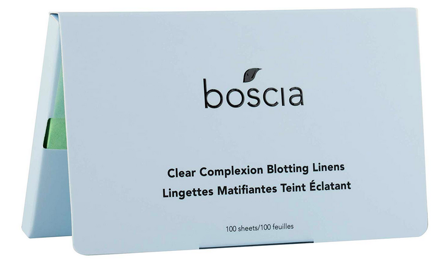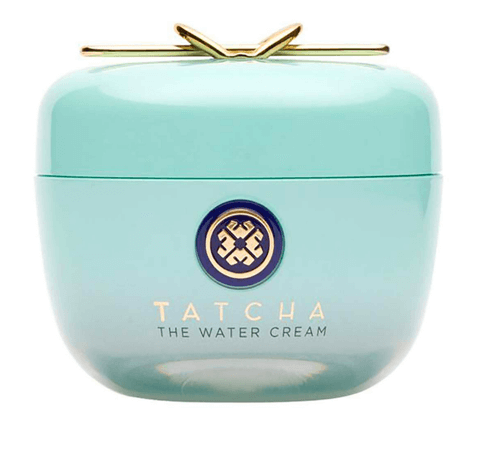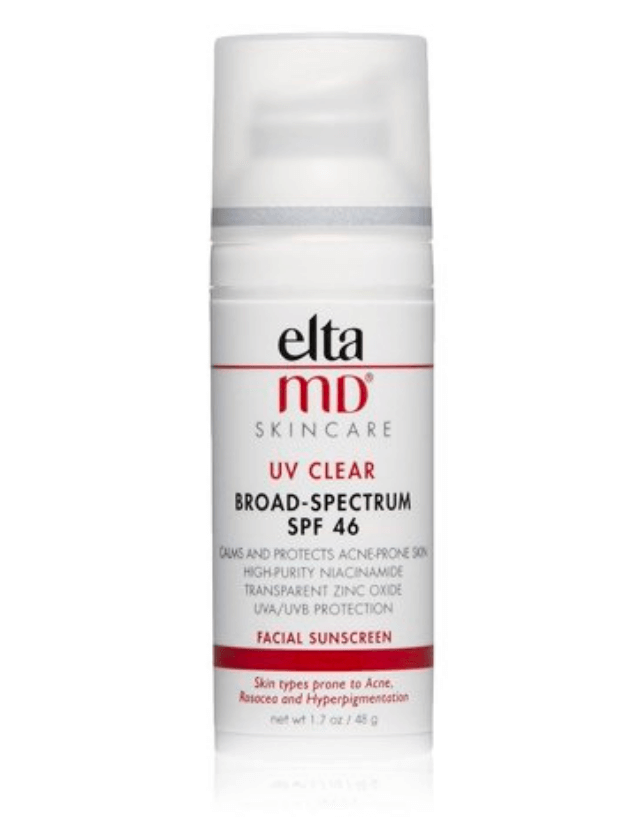Oiliness:
Causes, Treatments, & Top Ingredients
GHS ONE-LINER: Shiny skin. Enlarged pores.
Oily skin is medically known as seborrhea and refers to a shiny, thick or heavy skin texture resulting from an overproduction of oil (aka sebum) from the sebaceous glands in your skin. If you have oily skin, you are familiar with the seemingly hopeless battle of keeping your face from shining brighter than a newly waxed car, or worse, battling oiliness followed by breakouts which can cause your face to resemble a greasy slice of pepperoni pizza. Unfortunately, oily skin cannot be permanently eliminated (a horrid fact, we know). Although there is nothing you can do to stop it, there are ways to control it.
What Causes Oily Skin?

Genetics is the number one cause for oily skin. Yes, you can thank your family for the daily struggles you face battling a shiny face and enlarged pores. Genetics determine the size and amount of sebaceous glands you have, as well as the amount of oil your sebaceous glands produce. These genes can be the reason your sebaceous glands are over-producing oil. Unfortunately, oiliness from genetics can not be stopped. However, with the correct skin care routine and treatments, that extra special shine your family blessed you with can be maintained.


Androgen hormones (i.e. testosterone - present in both males and females) directly influence your oil levels. As your hormones fluctuate during puberty, pregnancy, aging or menopause, your androgen levels can increase, resulting in an increase in the oil production in your skin as well as acne-causing bacteria.
- Check the pill: birth control can affect acne—either causing it or helping to clear it up. The lower the androgen level in your birth control, the better for your skin when light gets reflected off your blood vessels


Try different products during different seasons - like how you adjust your wardrobe for the weather
Hot weather and humid climates can influence the amount of oil being produced in your pores, causing your sebaceous glands to produce more oil than normal.
- You must still moisturize despite being in a hot/humid climate - moisturizers that are non-comedogenic, with humectants and low levels of emollients, will hydrate your skin without causing breakouts
- In humid climates, after applying moisturizer, use a primer to provide a smooth base for your makeup and help keep it from melting off in warm, wet weather
Cold weather and dry climates can cause your skin to become dehydrated, leading to your sebaceous gland to overcompensate for the dryness and produce more oil than normal.
- If you are in a cold or dry climate, look for moisturizers that are in the form of creams instead of liquids or gels because creams will better at locking in moisture in cold or dry climates
- During the winter months, consider getting a humidifier for your home - they can help restore the moisture in your skin that was stripped by the cold outdoor air


In the effort to look younger or reduce the oil and acne produced by your skin, you may actually be causing your skin to become more oily by overly cleansing and exfoliating. When you use too much cleaning and exfoliating products (especially with scrubs), your skin gets stripped of its natural oils, which results in excessive dryness and irritation, causing your sebaceous glands to overproduce oil in order to compensate for the loss.

Not sure if you have oily skin?
Here's how to tell...
✓ Your skin is shiny and greasy, especially on the T-zone (forehead, nose and chin)
✓ You have enlarged pores (aka your pores are more noticeable)
✓ You may suffer from occasional breakouts as a result excess oil and clogged pores
✓ Your cosmetics often look runny and not matte on your face
How to Treat Oily Skin

Use an Oil Control Cleanser
Use a gentle water-based or gel cleanser twice a day to remove dirt and breakdown the oils within your skin. Avoid harsh cleansers that strip the natural oils from your skin. Those harsh cleansers will dry out your skin, making it more prone to premature aging and excess oil production. After cleansing, pat your skin dry with a washcloth - do not roughly rub the washcloth on your face to dry.

Exfoliate a Few Times Weekly
After cleansing, use a chemical exfoliant (i.e. salicylic acid) in the form of a peel, mask, or serum a few times a week in the evening to deeply clean your pores by removing excess oil and preventing dead skin cell build-up by shedding dead skin cells.

Use a Non-Alcoholic Toner
Post cleansing and/or exfoliating, use a low pH toner that does not contain alcohol (isopropyl). Some toners may contain salicylic acid which will help remove dead skin cells and temporarily tighten your pores.

Apply a Clay Mask a Few Times a Week Therapy
After cleansing and/or exfoliating, apply a clay mask a few times a week. Masks containing smectite or bentonite work to absorb excess oils and reduce skin shininess and sebum levels without irritating your skin. Follow up with a toner, serum, and non-comedogenic moisturizer.

Oily Skin Ouick Fix: Blotting Sheets
Control your shine temporarily with oil blotting sheets - these are great for when you are on the go!

Do Not Dry Out Your Skin - Always Hydrate & Moisturize!
Contrary to popular belief, oil does not hydrate your skin, and having oily skin does not mean your skin is moisturized. Twice a day be sure to apply a water-based, non-comedogenic moisturizer that contains humectants (i.e. hyaluronic acid or glycerin) in order to hydrate your skin and protect your skin's barrier. Drying out your skin will not make your skin less oily - it will actually do the opposite, and cause your skin to produce more oil in attempt to prevent dehydration. This will only damage your skin overtime. Hydrating and moisturizing your skin is a necessity.

Apply Sunscreen Daily
After moisturizing, always apply sunscreen with an SPF of 15 or higher daily on your face (yes, even during the winter, and even when it’s cloudy out). Sunscreen that is oil-free or non-comedogenic will not cause your skin to feel greasy or breakout.

Think "Non-comedogenic"
Use skin care and makeup products that are labeled “non-comedogenic". This means that the product has been tested and formulated so it won’t block or clog your pores, therefore it will not cause breakouts.
Check out the GHS 10 Best Oil Control Products for treating oiliness.
Our curated list is paraben-free, sulfate-free, and phthalate-free.
Top 6 Ingredients for Treating Oily Skin
✓ Salicylic Acid
- Cleans out excess oil in pores
- Removes dead skin cells
- Soothes inflammation
Category: BHA, exfoliant, keratolytic
✓ Bentonite
- Absorbs excess oil in pores
- Temporarily shrinks pores
- Mattifies skin to reduce shine
Category: clay
✓ Glycerin
- Hydrates without clogging pores
- Replenishes moisture (oil does not hydrate)
- Pair with emollients or occlusives
Category: humectant (hydrator)
✓ Hyaluronic Acid
- Hydrates without clogging pores
- Replenishes moisture (oil does not hydrate)
- Pair with emollients or occlusives
Category: humectant (hydrator)
✓ Ceramides
- Strengthen the lipid barrier (natural protective barrier)
- Stimulates production of lipids
- Smooth and soften skin
Category: lipids (moisturizer)
✓ Jojoba Oil
- Seals in moisture
- Strengthens skin’s protective barrier
- Pair with humectants
Category: lipids (moisturizer)
FAQs about Oiliness
Q. What causes oily skin?
- Genetics
- Hormones
- Weather
- Overuse of skin care products

Q. How can I tell if I have oily skin?
- Your skin is shiny and greasy, especially on the T-zone (forehead, nose and chin)
- You have enlarged pores (aka your pores are more noticeable)
- You may suffer from occasional breakouts as a result excess oil and clogged pores
- Your cosmetics often look runny and not matte on your face

Q. How do you treat oily skin?
- Use products that are non-comedogenic
- Use an oil control cleanser twice a day
- Use a chemical exfoliant a few times a week
- Use a non-alcoholic toner
- Apply a clay mask a few times a week
- Do not dry out your skin - always hydrate and moisturize
- Control your shine temporarily with oil blotting sheets

Q. What produces oil in your skin?
The oil in your skin is also known as sebum and it is produced by sebaceous glands. These glands are attached to your hair follicles and when they produce oil, the oil is released through your pores.

Q. Why does my skin produce oil?
Your skin produces oil in order to keep your skin hydrated and protect it from losing moisture.

Q. Will oily skin ever go away?
It depends. If your oily skin is from hormones, stress, weather, or an overuse of skin care product, then your oiliness can go away overtime with the proper treatments. However, if your oily skin is genetic, then it may never go away - the good news is there are ways to maintain it with the correct skin care routine.

Q. Will oily skin prevent fine lines and wrinkles? Does having oily skin make you age better?
No, oily skin will not prevent wrinkles. However, those with oily skin have less visible fine lines and wrinkles because of the excess oil. Therefore, it is still important that you making anti-aging an important element of your skin care routine.

Q. Does greasy food cause oily skin?
Contrary to popular belief, consuming certain foods or a high-fat diet do NOT cause oily skin. The fats and oils in your diet are broken down by the digestive system, and there is no pathway from your digestive system to your skin. Go ahead - celebrate this and enjoy a cheeseburgers and french fries. Just be sure to not get the grease from those foods on your skin because that can worsen your oily complexion, leading to clogged pores and potential breakouts.

Q. Can oily skin cause acne?
Yes, oiliness is one of the causes of acne, but it's not the only cause. Although acne and oily skin frequently occur together, not everyone with oily skin has acne. Learn more about how oiliness affects acne.

Q. Will accutane help oily skin?
Yes - but it will not permanently eliminate oil production within your skin. Accutane works to normalize the production of oil from the sebaceous glands in order to prevent acne breakouts.

Q. Will moisturizer make my skin more oily?
No. It might seem counterintuitive, but moisture actually helps your oily skin. If you dry out your oily skin too much, your skin responds by producing more oil, which can lead to breakouts.
Q. Will moisturizer help oily skin?
Yes! Oil does not hydrate your skin so even oily skin must always be moisturized.

Q. Which moisturizer is good for oily skin?
The best moisturizer for oily skin is one that is lightweight, non-comedogenic (which means it won't clog your pores), and oil-free. It should be absorbed by your skin, making your skin feel hydrated, not oily.

Q. Does sunscreen make oily skin worse?
The wrong type of sunscreen can cause a chemical reaction on the skin that can lead to breakouts. However, wearing SPF regularly is crucial and there are well-formulated non-comedogenic SPFs that can protect your skin without clogging your pores or making your face feel slimy.

Q. Can oily skin become dry?
Yes - even though you have oily skin, your skin can still become dehydrated due to lack of water or use of harsh products that strip your skin of its natural oils. When your skin becomes dehydrated, it begins to over-produce oil to compensate for the lack of moisture in your skin - sometimes dehydrated skin can be mistaken for oily skin.

Q. Which makeup is best for oily skin?
The best makeup for oily skin consists of products that are formulated as oil-free or non-comedogenic. Avoid any makeup that contains silicones and mica because those ingredients can block your pores, causing oil-build up and irritation.

Q. Which essential oils are best for oily skin?
Several oils are high in “oleic” fatty acids, which are believed to cause more clogged pores than those high in “linoleic” fatty acids. Since oily skin is believed to be low in linoleic fatty acids, oils with more of these typically work well, while those with more “oleic” acid may cause more issues. Based on this theory, some to avoid include olive, avocado, apricot kernel, and sweet almond oil.

Q. Will using blotting sheets reduce the production of oil?
No - they are a temporary, quick fix. For example, if you need something to quickly fix the shine on your face before a meeting or a date, they are great for that. However, blotting sheets will have no effect on the amount of oil your skin produces.

Q. Will Botox help oily skin?
Although it’s not FDA approved to treat oiliness, Botox can temporarily cause your sebaceous glands to shrink, resulting in less oily skin and smaller pores for a few months until the Botox wears off.

Want More GHS Tips?
It’ll be the best thing to ever slide into your DM's.





